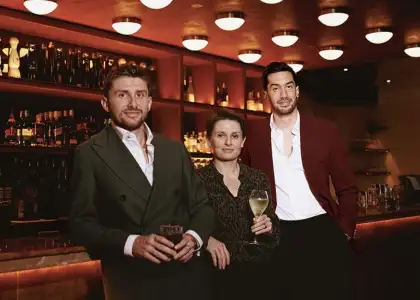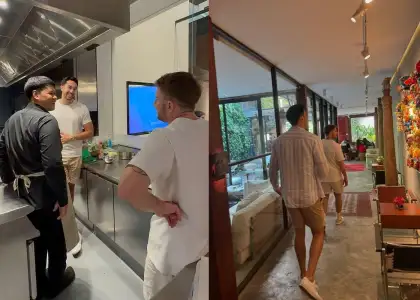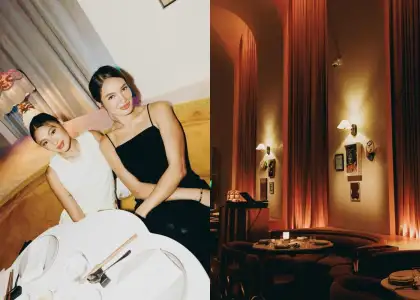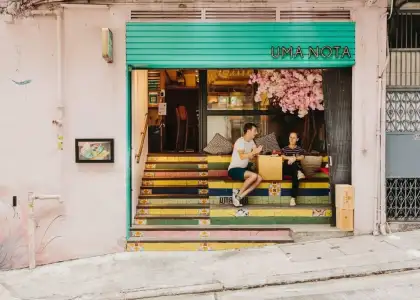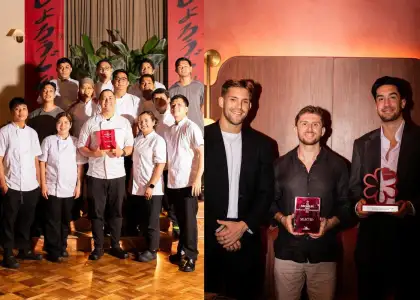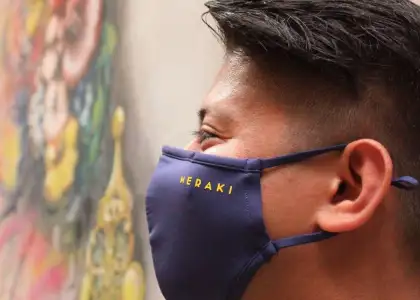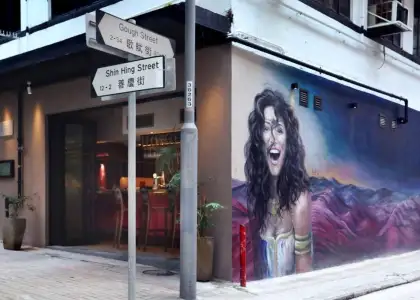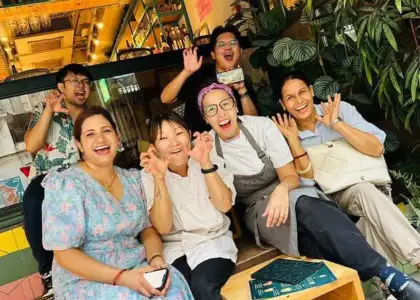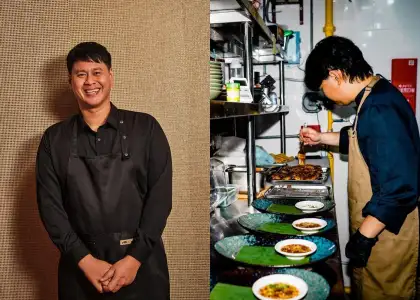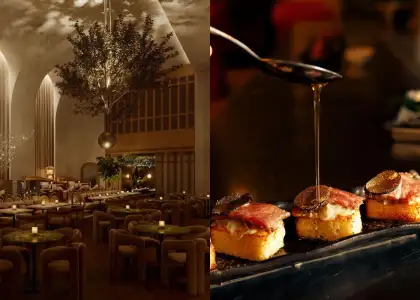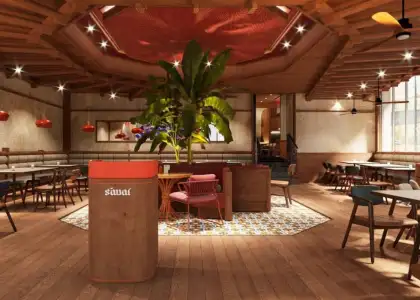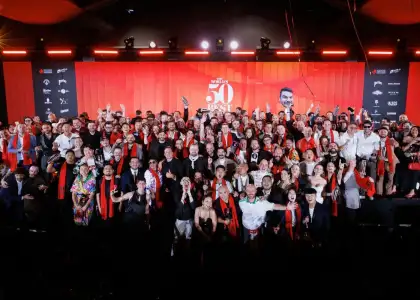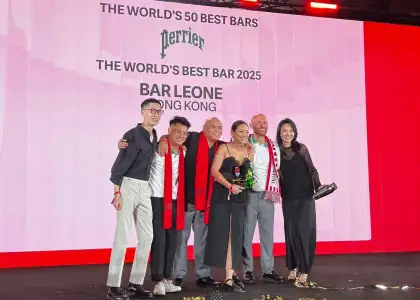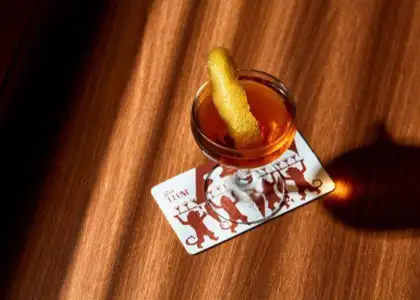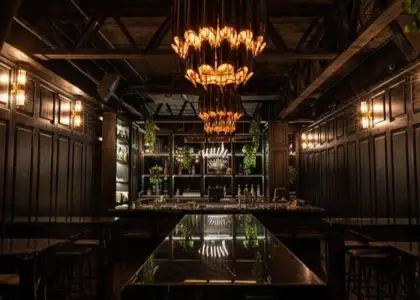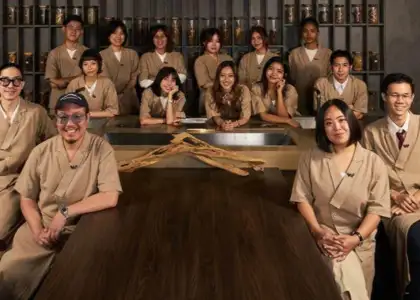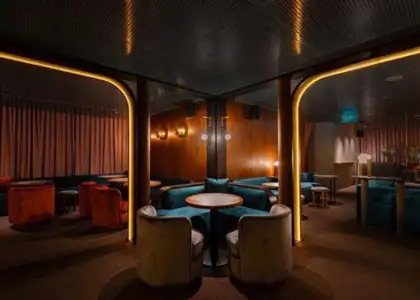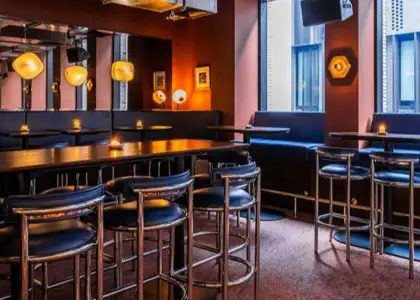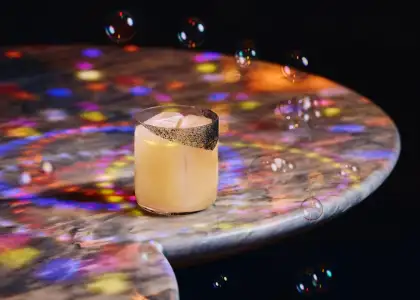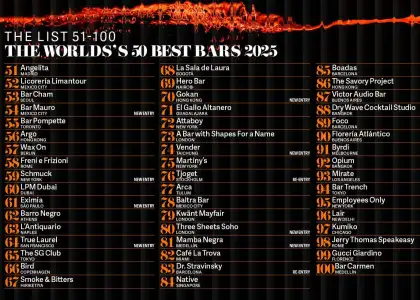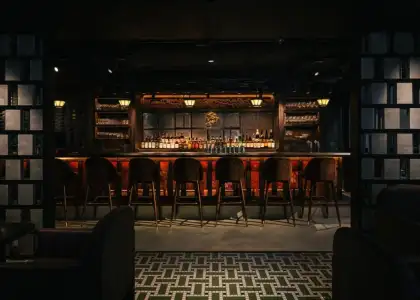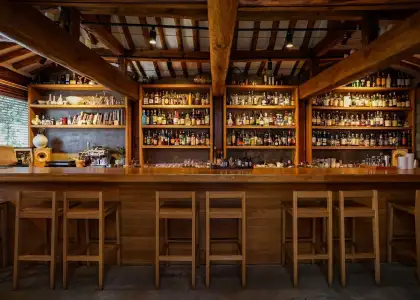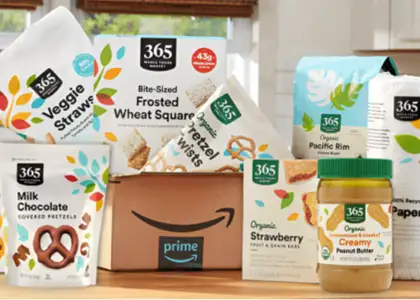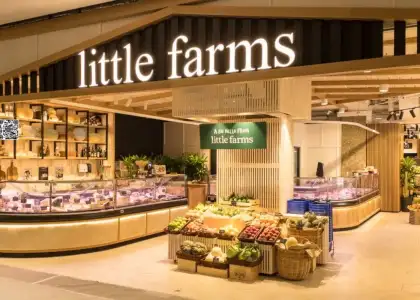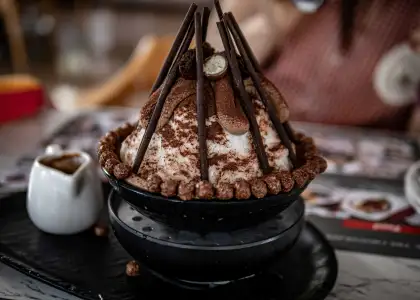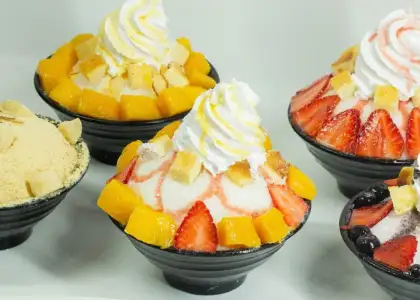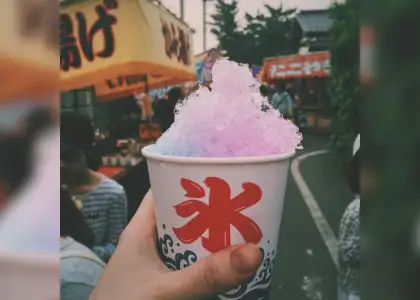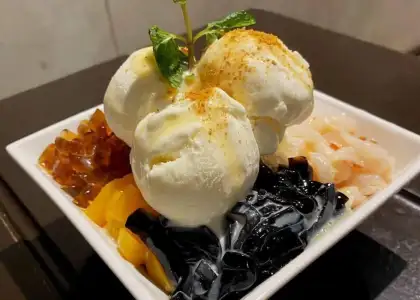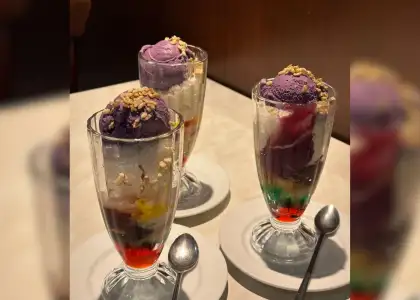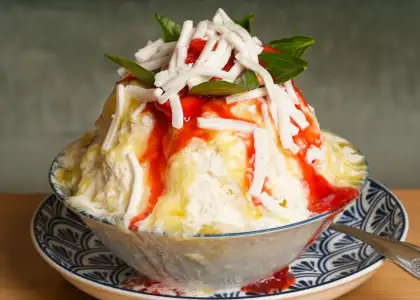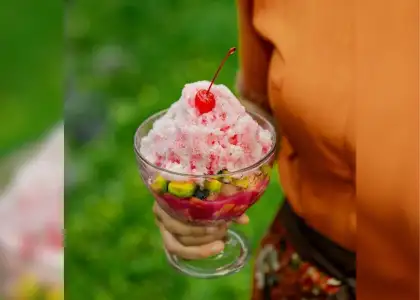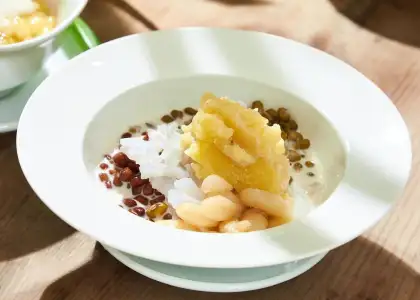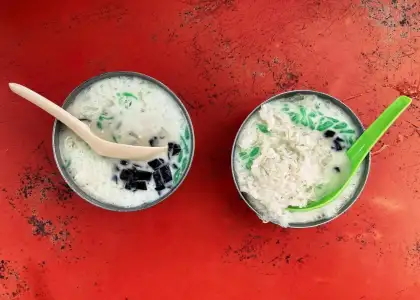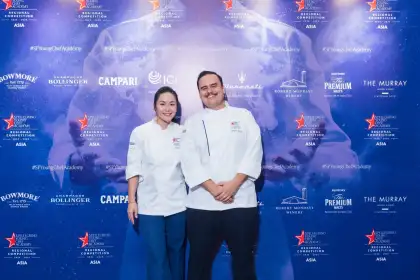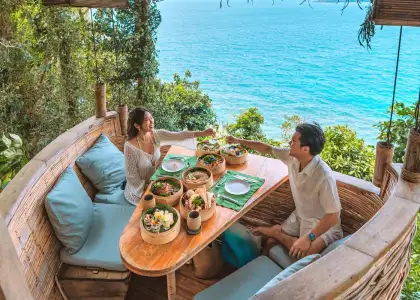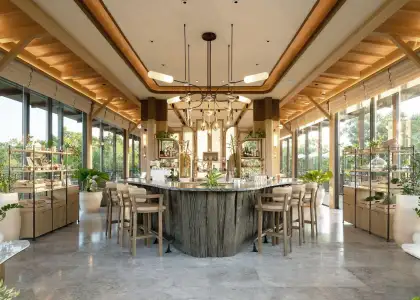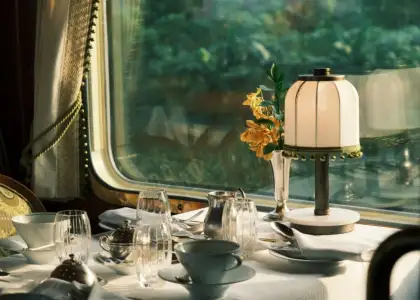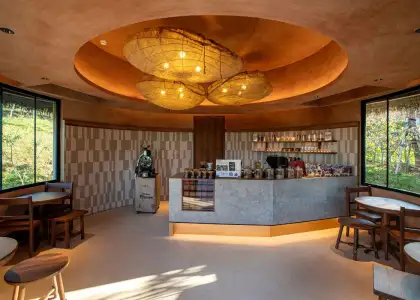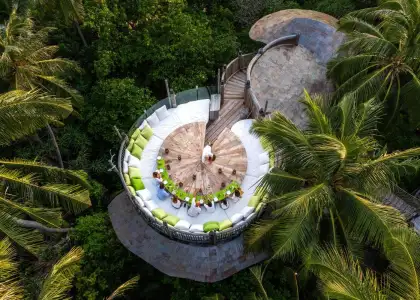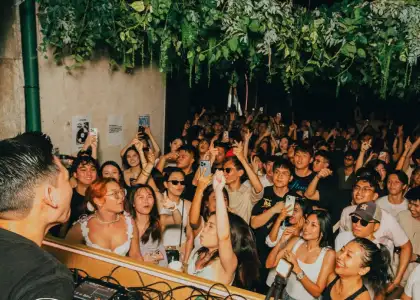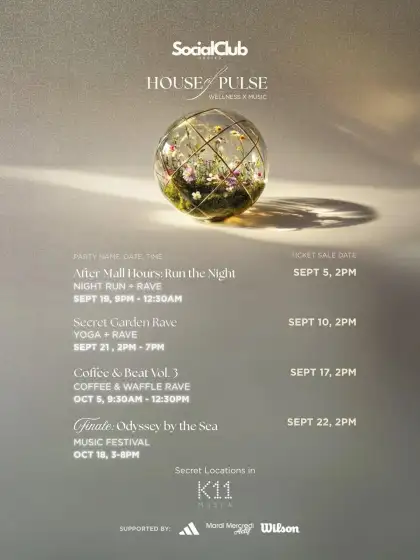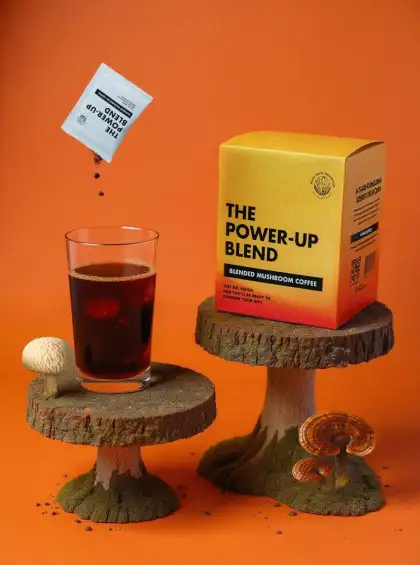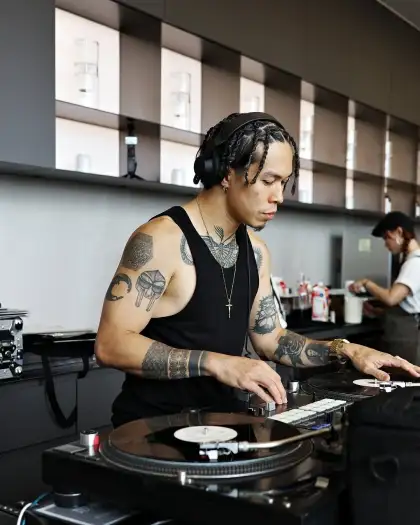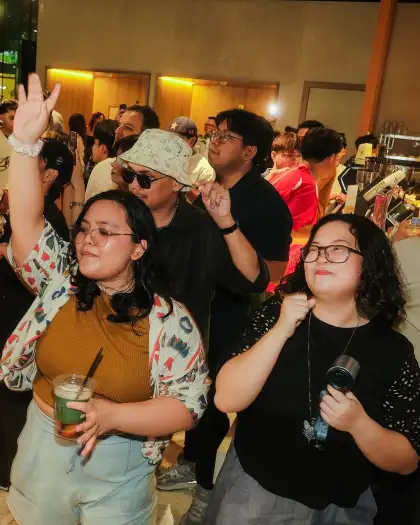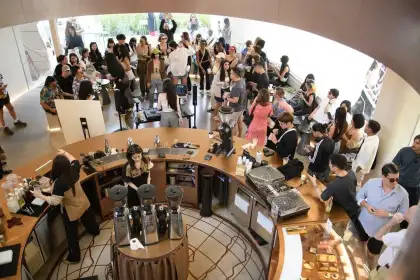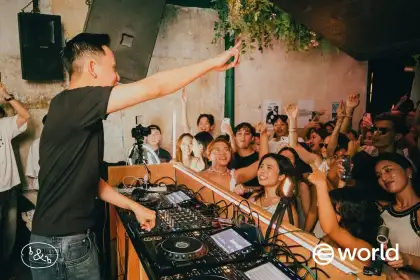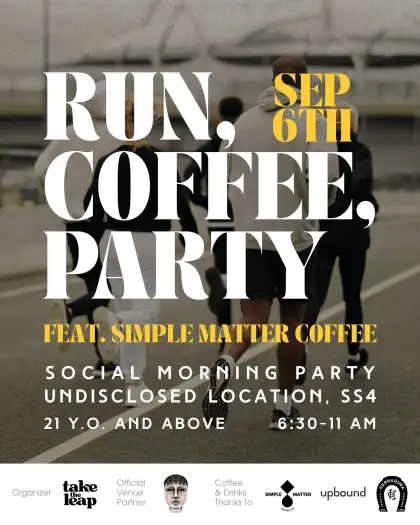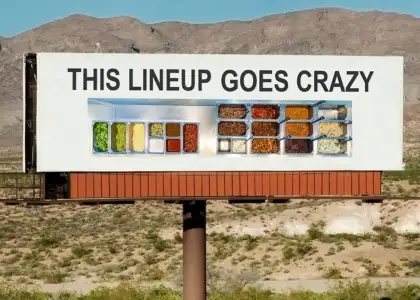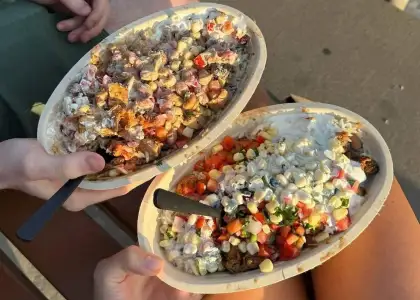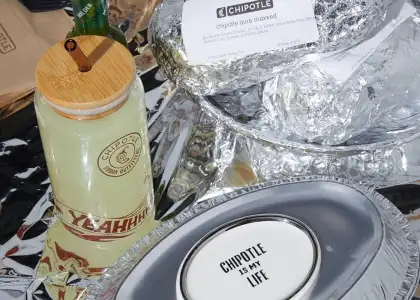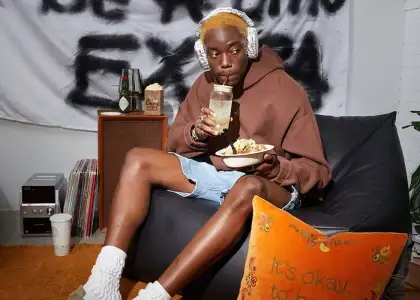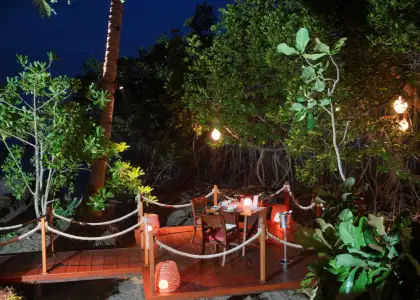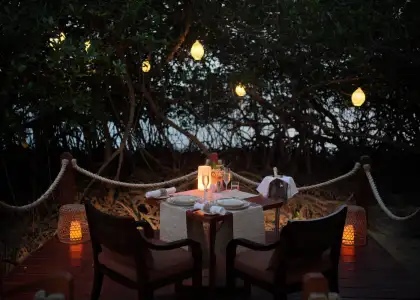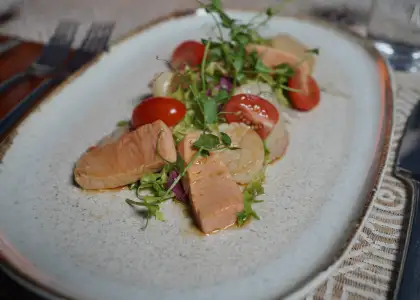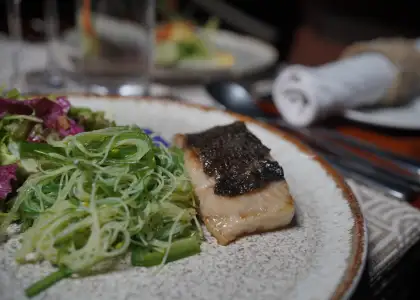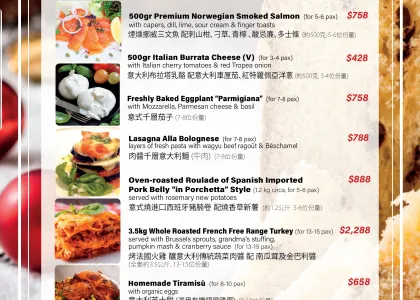Shady Acres’ Matt Richardson and Ryan Nightingale on The Delish Guestlist
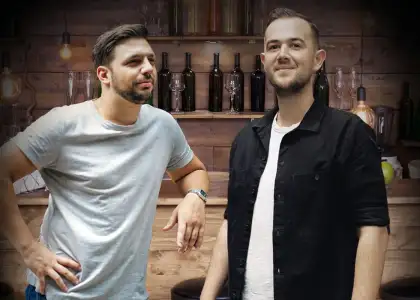
Matt Richardson and Ryan Nightingale are the key vibe-creators for SoHo’s Shady Acres bar and restaurant family: an eclectic collection of venues ranging from neighbourhood bars, discotheques, communal watering holes, and relaxed lunch spots.
Owing to the success of SoHo’s celebrated Shady Acres, Americana-inspired Honky Tonks Tavern, bumping retro Quality Goods Club, and the New York Jewish-style Mendel's Deli, Matt and Ryan, alongside a team of 65 Shady cousins, have braved the four-year storm of protests and COVID-19 to survive and thrive in Hong Kong’s F&B space.
Formidable within Hong Kong, having worked for Black Sheep Restaurants and JIA Group respectively, Matt and Ryan star on The Delish Guestlist Podcast to chat about growing some of SoHo's favourite venues and expanding their humble empire in new directions in 2023.
The Delish Guestlist explores the stories of Hong Kong and Asia’s most captivating and game-changing hospitality legends, mixing our cocktails, cooking our food, and creating our dream experiences. Listen to what makes the region’s top mixologists, bartenders, chefs, operators, baristas, and sommeliers succeed!
The Delish Guestlist is available on Spotify, Apple Podcasts, Amazon Podcasts, or wherever you get your podcasts. Subscribe today and enjoy!
Enjoyed this article? Check out our previous The Delish Guestlist Podcasts here.
Transcript of the episode with Matt Richardson and Ryan Nightingale on The Delish Guestlist podcast:
The podcast transcript provided is generated using speech recognition software and has not been reviewed for accuracy. We cannot guarantee that the transcript is accurate. If you believe something is incorrect, please contact us to make the necessary corrections.
Rubin Verebes: Welcome to the Delicious Guest List Podcast, a deep dive into the lives and work of Hong Kong's crazy food and beverage industry leaders hosted by the Beat Asia Magazine. This episode, we sit down and chat with Matt Richardson and Ryan Nightingale.
Both intertwined in many ways with the infamous shady restaurant and bar family representing Shady Acres dive bar, Honky Tonks, music-thumping Quality Goods Club, and Jewish styled Mendel’s Deli - already big names in Hong Kong's food scene. Matt and Ryan schmooze with the Beat Asia, about growing one of Hong Kong's favourite group of eclectic venues throughout protests and Covid and expanding their mini empire in new directions this year.
[Sting]
Rubin Verebes: Hello, listeners in Hong Kong, Asia, and Beyond. We are speaking today with Matt Richardson - partner and director of Honky Tonks and more; and Ryan Nightingale - co-owner of Shady Acres and more at Honky Tonks Tavern, which was awarded the Campari Award at Asia's Best 50 bars in 2022.
If you've ever eaten dinner or drunken in SoHo after dark, you’re bound to have entered a Matt-Ryan trademarked venue ranging from the electric and gravitas Shady acres, Americana-inspired Honky Tonks tavern, bumping-retro Quality Goods Club, or the New York Jewish style Mendel’s Deli - braving the four year storm of protests in 2019 and Covid 19 for three years.
Matt and Ryan, alongside dozens of cousins in the Shady family, are ready to break ground in 2023. Thank you guys for joining us. You’re household names in Hong Kong, but when did that story start for the both of you?
Matt Richardson: Ah, when did I move here? I moved to Hong Kong, I think it was 2016, straight from London to Hong Kong, when everything was pumping in and exciting here. When did you move around?
Ryan Nightingale: I moved in the summer of 2014. I'm from London, but via Canada, and I worked for big restaurant groups. Kind of never been to Asia before and decided to move to Hong Kong.
Rubin Verebes: Interesting, I guess the story of the Shady family, what people come to say is the cousin, the entourage, that created these venues, it began the story in 2019. Why did you guys switch from corporate F&B managing this CV of real concept bars and restaurants?
Matt Richardson: I think for myself, I moved over here from London to work for Black Sheep, directly over, and in F&B it's quite hard to move countries when you are at a certain level with management.
You can go to Dubai, you can work in places like that. But to come over to Asia, I didn't know there would be that many opportunities coming here. So I got approached on LinkedIn by Black Sheep saying, would I want to come over here.
I remember I was on a bus going through London. I thought, that's interesting. Went home, told my partner and said, “What do you think about this?” And she seemed up for it. So, Chris and Asim, who are the founders of Black Sheep then came to London the following week. I met up with him, he said, “anything keeping you here?” I said, “Yeah, my partner.”
And he said, “We’ll give her a job too.” So it was an opportunity that I didn't think I could turn down to move over to Hong Kong and work with this big company. It's companies like that, which I think have the gravitas to be able to bring over expats. So it was a really good way into the city.
You know, I remember thinking: “Worst case, if I don't like it, I can probably just run away.”
Rubin Verebes: Was it the same gravity that drew you from, back in Canada, straight to Hong Kong with that sort of corporate role?
Ryan Nightingale: I guess, yeah. I worked for an expanding company as well in London and they were expanding over to Asia I guess, you know, coming to any new city as a mid-twenties or whatever, you really are kind of awestruck by everything. That's the shift of change and, you know, it's a different culture, different culture in the workplace as well, and you're trying to bring some of that while still working and being part of it.
And I think that's where the people that lasted in Hong Kong are the ones who kind of brought both their own culture and melded into the culture of Hong Kong. But then I think with that as well, you kind of get itchy to do something more because you do start to see as you're weaving your way through, the gaps or the holes that you miss about certain aspects from their home that they do want to bring here.
Rubin Verebes: So do you think it's the investment in time and years spent in Hong Kong that allows you to become a bit more experienced and a bit more risky in F&B?
Matt Richardson: Yeah, for sure. I think after being here for a few years, you understand the lay of the land and just what drives the city, and what makes it so special.
I never thought I would, when I moved here, I thought I'd just be with Black Sheep forever. Because it's hard to imagine working for anybody else when you are here at the beginning.
Rubin Verebes: Mm.
Matt Richardson: Because you're so reliant on that company to keep you safe in a way, you know, , there's a lot of expenditure moving here as well. But after a few years you make your own friendship groups and you see bigger things.
I don’t know when the exact shift was for me, but thinking that this could be somewhere you could be a business owner, but, it does come and then you just see just so much opportunity for it.
Rubin Verebes: Absolutely. You managed five restaurants within Black Sheep and then also brought Ahan over to Hong Kong. What was the pull away from that corporate side to this risk of creating essentially, bar after bar without much structure of, you know, a larger sort of entity?
Matt Richardson: Yeah, it was Covid, which made me do it. Once I'd left Black Sheep to work with the Ahan guys - I still do work with them, but my job was to look after Asia Pacific for that group. So we have some stuff in some long-term restaurants in Australia, a place in Bangkok and more entities around Thailand. But I couldn't travel, I could work for my laptop, but I was stuck in Hong Kong and we have the venues here - but especially in Covid times, it wasn't enough to necessarily justify what I did for a living and also keep me fully engaged and then I spoke to Mike and Ryan, Ryan is obviously is one next to me.
I said, look, we're doing this project. I said, “I've got some time on my hands.” I thought, let's do it all together. So it's purely out of wanting to keep moving and focused and trying to new things in this industry which allowed that to happen.
With Covid it was also a little bit probably a ‘get out of jail free card’ in a way that the expectations were quite low in if we could just open something and it survived, I'd be proud that we did that.
Rubin Verebes: Ryan, what was it like (the partnership) in the beginning, joining the threesome to open up a restaurant when it was really risky, when there was not much future in Hong Kong and across the world about what was going to happen?
Ryan Nightingale: Yeah. Well so many things changed across these years since Covid was happening and coming from Shady Acres and adapting several times and just kind of thinking on your feet - I guess, when you find a correct kind of venue, there's a magnetism from after what we did with Shady Acres to do something new.
So when we were looking for another partner to help us expand, there was already a momentum going for us. And the risks are there, yes, but sometimes you just get so focused on what do you need to do tomorrow, what do you need to do the next day?
And there was a lot of energy and momentum that was keeping up and I think that's a big part of it as well. There's such unreal conditions from what we're used to doing as far as the right way to expand business in doing these things. But, there's always the need to strike while that iron is hot.
Rubin Verebes: Do you think this family of venues is a sort of ‘fuck you’ resistance to the changes in Hong Kong? A lot of cocktail bars opening in 2019, but there's no real natural wine bar [like Shady Acres]. Honky Tonks is a space where you can enjoy food and wine under a concept that really hasn't evolved so much in Hong Kong. Is there a sort of resistance?
Ryan Nightingale: Ah, I think the consciousness of it was just that we wanted to find a place that I really would like and I felt that coming up from other cities and seeing how things advanced and grew - and Hong Kong had its explosion, but then it didn't feel like it was trying to catch up on its own self and carve out what the niches were.
I mean, look at our prices at the beginning of Shady Acres, it was a little bit of a ‘fuck you’, you didn’t have to pay HK$150 for a cocktail. Is it good or not? You don't know until you sip it, right? There was a little bit of that attitude, but I think it was more just looking inward of like, what did we want and what did we want to showcase of the things that we are proud of, rather than trying to push anyone else down.
I think Hong Kong still is such a small city and even leaving more of a group role and things like that [I] still learned so much and kept in touch with all those people there that for us to be that arrogant, I think a lot of people thought that at first.
Matt Richardson: Yeah, there was a big drawn away to not be corporate and a bit of a ‘fuck you’ when it came to everything. Whether that be uniforms reporting, we won't do anything we didn't like… and then you quickly realize there's a reason why processes exist, and you slowly start thinking, “Ah, yeah, that made sense now.”
But you find the middle ground, you know, you make sure that we do things the way we want, but we make sure we are compliant and we make it also smooth and streamlined. As you said about the price of drinks, we charge what we think is correct.
Rubin Verebes: Mm-hmm.
Matt Richardson: We don't have big corporations to pay, we're not a small group by any chance, we have 65 people who work within the group now, so it's not small. So we have a lot more to think about than we did a few years ago but we get to do it our way, which is always fun.
Rubin Verebes: Absolutely. I guess the underlying theme is tongue and cheek.
Matt Richardson: Yeah.
Rubin Verebes: And it's a bit raw as well.
Matt Richardson: Probably, yeah.
Rubin Verebes: Coming to 2020 when you guys opened Honky Tonks, it's something that Hong Kong, like I said, hasn't really seen before. Very Americana-inspired, we're inside somewhere where you wouldn't think that you're in Hong Kong, but you step outside, and you're in SoHo. What was the intention behind really driving this force?
Ryan Nightingale: Well, I think a few of us have always just been drawn to that very American-Western sensibility of somewhat of a dive bar. With a space that feels like it's already kind of well-worn in there was so much that we learned from opening up Shady Acres and doing that on a tighter budget.
To then kind of turn around and flex in a different space, this is our most themed kind of space when we opened this up. So it was built with an intention to be a space that felt warm and vaguely North America[n].
I mean, our bartenders are American, Mexican, and Canadian when we first opened up. So that was like the whole of North America.
Matt Richardson: Yeah, people thought we were a Canadian bar for a good year as well.
Rubin Verebes: Ryan, what are you doing?!
Matt Richardson: We did have a sign that we said Canadian restaurant cause we thought it was funny.
Ryan Nightingale: Found it in the trash [laughs]
Matt Richardson: -and people took it too literally. It was a few articles which talked about this new Canadian restaurant, so that sign got taken down.
Rubin Verebes: I know Quality Goods Club kickstarted a dinner menu only a few months ago. Is it important to not only deliver a cocktail and wine menu, but bring that in with food and show the creativity there?
Matt Richardson: For sure. I mean we are predominately a wet businesses, say, 80% of our revenue comes through beverage. But it's really important to have the food element to sober people up so it gives some options. And also just to increase the amount of promoting talent in a way that we can offer more to people.
You can come here and you don't lose guests because someone at the table is hungry. You always want to have something to appeal to people to be able to stay as long as possible. I think that's something Quality Goods Club has strived for.
The more you can offer people, the longer they stay in the venue so you know, you can capture more of their evening out.
Ryan Nightingale: I think a lot of our favourite places are always places that kind of blur that line between is it more restaurant or more bar? Does it kind of swing one way or the other or grow into it?
Rubin Verebes: Do you think you guys have consciously created hangout spaces instead of just restaurant and bars?
Matt Richardson: I think so. For here especially Shady Acres, it's a little bit harder when you're here as a guest because there isn't really as much standing room, if any, points when Honky Tonks, I think off that, was then designed to have it, it can be very loose here at the weekend. There's people everywhere.
We particularly made two sides to this venue where there's more a standing bar where you walk up to self-serve and there's a seated restaurant side where we look after you. And given that idea of, we don't ask for table return times, we never push people out, none of that stuff.
All the things that immediately make you feel like you can't hang out for a long time, we wanted to get rid of that and make you feel like you could be here.
Ryan Nightingale: We got friends and regulars and people live in the neighbourhood who, you know, if you don't see 'em for a while, you kind of go “Oh, where do they go?”
Matt Richardson: Oh yeah. Seeing someone sat here with a glass of wine on like a Saturday afternoon just reading book is like a nicest thing. It's so nice to see that - and it happens here.
Rubin Verebes: Yeah. So within the family, you guys have concepts that haven't really been seen in Hong Kong. Taking to Quality Goods Club, a jazz funky house space that no other Lan Kwai or SoHo space is kind of performing, and Mendel's Deli as well - a Jewish style New York diner, that really blew waves early last year. Is it important to have a real concrete concept behind that sort of funk and that style?
Or is it just: “Oh damn, we have a Canadian bartender, Let's do something Canadian.” “We have a Brit, let's do some fish and chip.”
Matt Richardson: I think some are more important than others. So Mendel’s has to have a real story to it.
Rubin Verebes: Mm-hmm.
Matt Richardson: A reason why we've chosen that cuisine really and that root, I think for things to resonate - we can't just put anything on the wall and claim to be an American bar. There has to be deeper ties to it than that, conceptually. I think that's always from the beginning.
Like, what do we want to do? What do we believe we can pull off and authentically deliver? In our own take of it as well.
Places like Honky Tonks and Shady Acres can be a little bit looser, Quality Goods Club probably also has to be a tagline for what that venue is offering.
Rubin Verebes: I mean, sitting down on this table right now, about eight different cultures just between the four of us if not more, but we all consider ourselves Hong Kongers.
Matt Richardson: Yeah.
Rubin Verebes: Expats live abroad away from their family, locals love traveling. Us Hong Kongers, we always want that bit of escape. Is it important that when you enter a Shady family restaurant that you are escaping a bit to, [for example] the New York East side, you're going down to Canada, you're going up to maybe a bit of LA.
Ryan Nightingale: Yeah, I think so. I think touchstones to somewhere else is important. I guess like when it comes to bringing that forward, I don't think we've ever really fully claimed to try to be authentic. I like the idea of being more genuine than authentic. Just to kind of weave that way through of just like, “Hey, these are things that I care about.”
These are the what people work here are caring about, and we want to present, in a certain way. And I think always at most venues you do need to tie some neat boxes and tight little bows to be able to present what you are wanting to put forward.
And having a structured venue like a New York Deli, allows us to serve stuff that we still want to present, it's just delicious food, right? So, when that ties in to be that experiential, the guests coming in, that creates this feedback loop of, ‘Okay, now we recognize what people really are getting from this place.’
Like Honky Tonks, we didn't have all this art on the walls. It built up over time and, the amount of times people talked about, the Billy Bass singing story when we put that up, messaging us about it on Instagram and telling us little stories of when they were a kid that saw that.
That's, that's that kind of experience we're aiming for when it comes to building a concept around it is to get that little interaction with people.
Rubin Verebes: This story of your group began when people from outside stopped coming as much because of the protests, and when people from outside couldn't come for the past three years because of Covid entering. What are the chapters that you guys want to create in 2023?
Matt Richardson: I'm so excited for people to come here for the first time. Again, it was so weird. [Hong Kong] was first in line in every F&B person’s script or table. Have you been here before? And then nobody has said that in about three years.
But now to be able to meet people for the first time, show them this place, I think the excitement we'll all get and the team will get from seeing the confusion in people's faces of like, where the fuck they are, [chuckle] and then helping them plan their night out.
That was always one of my favourite things, being like, “you need to go here.” “You need to go here.” List some of our own venues within that list, but yeah, that's what I want to see from the year coming forward.
Rubin Verebes: Absolutely.
Ryan Nightingale: Yeah. I mean, it's fun to see tourists lost with Maps again and I think that has a double effect as well, if other places are busier, your regulars of the last few years are going to come and support you as well.
There's just going to be a bigger kind of overflow and I think Hong Kong's going to get that with its neighbourhoods again. I think it's been important to kind of stay as relevant and push hard. I know lots of restaurant groups and a lot of people have been, you know, constantly trying to reinvent themselves.
Hong Kong is a city of, you know, sometimes very fickle attitudes when it comes to new places. It has to be new, new, new all the time! And when you add tourists in as well, that newness could last a little longer. So I think places that have kind of pushed through, it's nice to see venues that are four-five, six, or eight years old.
Ho Lee Fook reinvented itself, it's eight or nine.
Matt Richardson: Yeah.
Ryan Nightingale: Same time I got here and I think all that work that's been put through, I think it's going to really shine through in 2023. I think a lot of places are going to get even more of that motivation to keep reinventing themselves and being proud of what they've done and got.
Rubin Verebes: What are you guys most proud about in the past four years?
Matt Richardson: I think for me, it's the team. It's the retention.
Rubin Verebes: Keeping 65 is a lot of people.
Matt Richardson: Yeah. Having 65 people now work for us. You know, we've still got so many of the team who opened the venues. Magnus at Shady Acres, you know, Adam, all those guys here from day one of us opening these venues, and we're still here together.
Through the headwinds of Covid to be able to still have the same team is amazing. That's my proudest thing, I think. Just, just making sure we're all, we're still here in a job.
Rubin Verebes: What about you, Ryan?
Ryan Nightingale: Yeah, I mean, the team is definitely something that came up to my mind as well. But I think outside of what we've built together, when you have someone coming off the street and they could be from anywhere in the world, and they go, “Oh, this reminds me of a place back home.”
Or like, “this feels familiar”, and there's that kind of warmth that we can provide, and I think, that's part of the reason why we do this. So that makes me proud every time. You know, it could be an Aussie or a Brit or someone from Sweden or someone from, I don't know, , Botswana and go, “Oh, this reminds me of this place back home.”
Or things like, “Oh, I've seen this.” “I haven't seen something like this since I went on this trip.” It just it makes me smile on that.
Rubin Verebes: Beautiful.
Matt Richardson: Since Covid, we've both been away and come back. It's been so nice to like actually step away from the venues and come back and be like, this is actually quite cool! You forget that when you see it every day.



